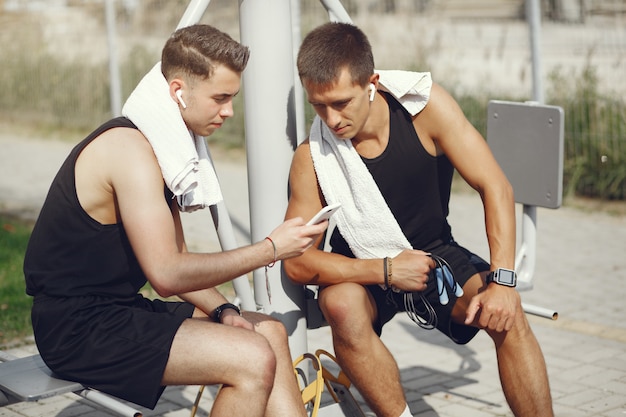
The endocrine system, a critical part of the body, is very sensitive to the stress from regular physical exercise. Studies show that long-term endurance exercises can negatively affect male hormonal balance. Men who frequently engage in these activities tend to have lower levels of free and total testosterone without an increase in luteinizing hormone (LH). These reduced testosterone levels, often 50-75% of what’s normal for a healthy sedentary man, don’t appear to be a short-term reaction to intense exercise.
Some men try using testosterone boosters like Testofuel to aid weight loss. However, physically active men showing these symptoms may have what’s called Exercise-Hypogonadal Male Condition (EHMC). The exact cause of reduced testosterone levels isn’t clear but might be linked to issues in the hypothalamus-pituitary-testicular axis and energy availability, similar to conditions seen in women athletes.
The most common exercises for these men are long-distance running, cycling, walking, or triathlon training. Hypogonadism usually develops in well-trained men with several years of intense endurance exercise. It’s also speculated that low testosterone levels disrupt anabolic processes like muscle protein synthesis.
A recent study last year involved nine long-distance runners diagnosed with exercise-related hypogonadism and compared them to eight healthy non-runners. The findings showed the EHMC group had significantly lower testosterone levels (9.2 vs. 16.2 nmol) and higher scores on a quality-of-life scale, indicating more severe symptoms of low testosterone.
No significant differences were found in cortisol, LH, FSH, or bone mineral density between the groups, though three cases of osteopenia were found in the EHMC group. Energy intake was the same across both groups, but energy availability was lower in the EHMC group, suggesting that inadequate energy consumption might contribute to this disorder.
In summary, long-term low-intensity training might be a good idea. The study indicates that exercise-induced hypogonadism in runners is associated with inadequate energy supply in relation to their needs. Active men consumed the same amount of energy as less active men, who had lower daily energy requirements.
Paying close attention to dietary energy intake is essential for maintaining male reproductive health. More research is needed in this area, as proper testosterone levels are crucial for fertility and bone health in active men. If you’re experiencing low testosterone levels, there are substances that can counteract the negative effects of endurance training, but be wary as not all are effective.